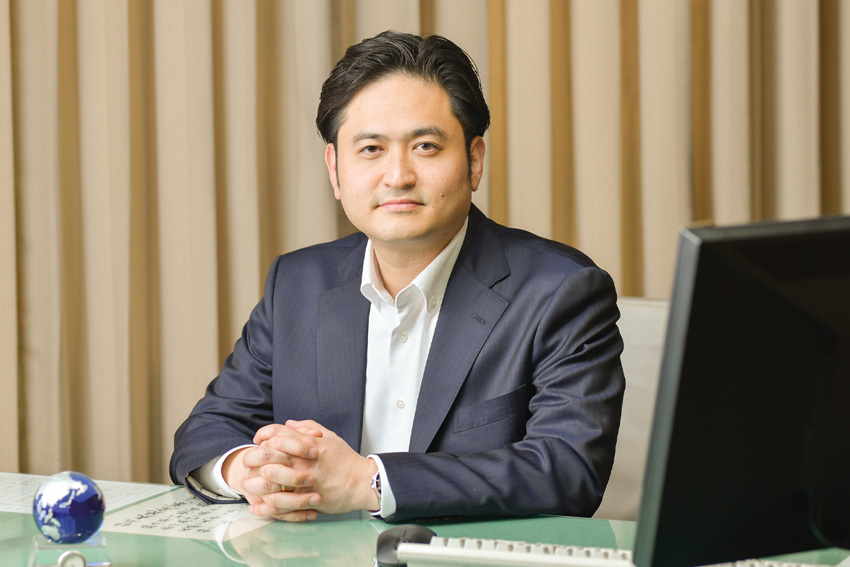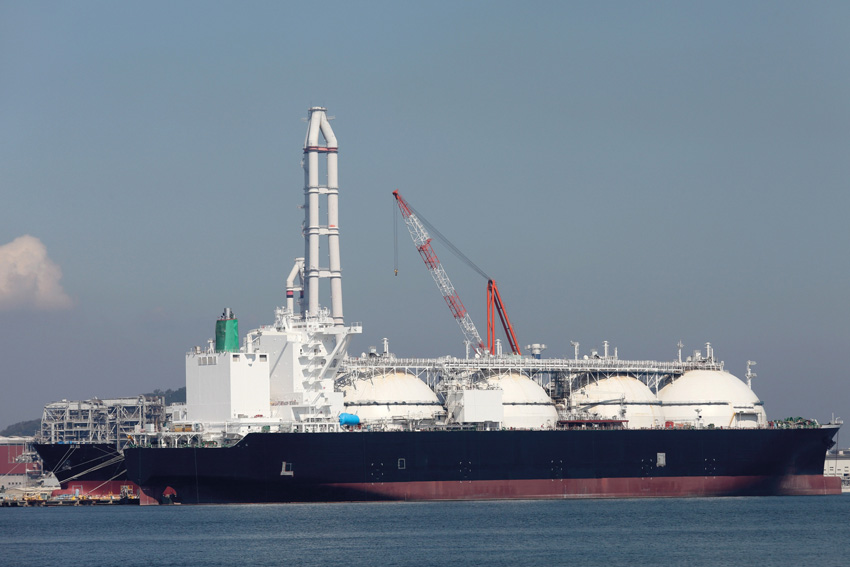Japanese manufacturing faces stiff competition from emerging regional players, however, Taiko Sangyo, a leading name in shipbuilding solutions, has managed to thrive.

Thank you very much Mr. Matsumoto for taking the time to have the interview. Over the past 25-30 years Japan has seen the rise of regional manufacturing competitors from countries like South Korea, China, and Taiwan who replicated the Japanese model of success, doing so at a cheaper labor cost. This has pushed Japan out of the mass industrial market. However, we know that Japan is still a leader when it comes to niche B2B fields as well. In your opinion, how did Japanese companies manage to maintain their leadership despite this regional competition?
First of all, the competitive advantage of Japanese companies lies in their high level of technology and their continuous effort to improve productivity. Furthermore, dealing with all the customers’ requirements in detail is one of the strengths of Japanese companies.
We know right now that Japan is the oldest society in the world and that the rapidly shrinking population is obviously generating a labor crisis. What have been some of the challenges this demographic shift has presented to your firm and how have you been reacting accordingly?
The demographic change has for sure an impact on labor shortage and this is a challenge, but on the other hand, we can take advantage of this downside and change our way of working by using senior workers and robots as well as inviting foreign workers to Japan. We have both sides of the coin, so we can take advantage of this situation and make it better.
On that point, I would like to ask you about attracting younger people to the industry. The average age in the shipping industry is above 50 years old, which is very similar to the construction industry in Japan. It is hard to attract young graduates to these labor-intensive industries, but there are also technologies like the MEGURI 2040 fully autonomous navigation systems that can navigate around Japan, more than 400 different populated islands, and that can prevent disasters. Japan is the leader when it comes to developing these technologies. Do you feel that the maritime industry could benefit significantly from these technological innovations, especially to attract younger generations, whether that is from Japan or overseas?
As we are an SME, what we aim to do in order to attract young generations is to have more exposure in society by for example participating in regional events, creating bus advertisements, donating to high schools, and so on. We try to change their perception of the industry by connecting with them and communicating the different opportunities we can offer that can be really rewarding for them.
Typically Japanese SMEs are not so engaging in social networking services (SNS). I believe you started your Twitter and Instagram accounts in October 2023, is that correct?
Yes, we just started.
You are in the shipbuilding industry and specifically, your top product is the fireproof door which you hold the top domestic market share here in Japan, but when it comes to fires we know doors can be a potential weak point because even if the wall, the sealing, and the floors are fireproof, a poor door can cause flames or smoke to rush up to buildings and structures. This was actually showcased in the 2022 Bronx fire in New York where two malfunctioning doors allowed smoke to spread throughout the entire apartment complex causing death throughout the building and it just shows how important doors are in fire prevention. Given that doors can pose a potential weak point in fires, how are you able to ensure the safety of the structures that your doors are used in and minimize the risk of failure?
In the shipping industry, the International Maritime Organization (IMO) sets fireproof standards for doors and we have to pass a public test to guarantee the safety of our fireproof doors. So basically all our doors meet international standards.
You are leading the domestic market share, but in terms of international, could you please tell us how your product is perceived internationally and what kind of competition it faces?
In terms of the international market, the leading country today in the shipping industry is China, for fireproof doors specifically. In South Korea, There is one of the leading companies with which we have a partnership, but there are also many others. Therefore, for us, Taiko Sangyo, it is difficult to say if we are competitive enough in the global market, but we are definitely the leader in fireproof doors in Japan.
We see how partnerships play an important role. Are you looking to expand your network of partnerships especially overseas whether it be for products or for distribution?
It is true that partnerships are very important in our industry. One of the reasons why we collaborate with other companies is that we can provide one-stop supplies to the customer. For example, we are working with our partner on ceiling panels and wall panels. In addition, we are also working with a company in China to provide products to the Japanese market. By collaborating, we can create more contact points with the customers and the customers feel it is easier to come to us. That is why we think that partnerships are so important.

Manufacture and supply of marine equipment
Would you be looking for more international partnerships? Is there any area where you feel the need to collaborate to expand your portfolio to be that one-stop service provider?
We are doing business with a French company. It is a huge corporation that has different businesses. We are also looking to collaborate with a Japanese company to provide products to shipyards in Vietnam.
Ships operate in a marine environment, which means that they are constantly exposed to salt water which can pose corrosion problems. Therefore, materials such as fireproof materials or any materials used for silences or tanks need to be resistant to this and capable of maintaining their effectiveness in these conditions. At the same time, they must be lightweight due to ship weight restrictions in order to be durable and long-lasting. How are you able to adapt your product to suit the different conditions and specifications needed for your customers?
To know what materials are suitable for the marine environment, we do both marketing and research at the same time and develop our products based on these two perspectives.
Since your foundation, you started with thin sheet metal products and you expanded your business area to include the manufacturing of thick plates such as silencers and wholesale of fireproof materials as well, your main market being the shipbuilding industry. Are you also looking to include your products and services in new markets and industries?
We are currently working on silencers for the land use market, including power plants. In this new business, we have been collaborating with makers of power generators since last year. Also, as I mentioned before, we are planning to start selling Japanese marine equipment to Vietnam.
Whether it be in new businesses or in the marine industry, you have showcased your high level of technology, through your fireproof doors for example. Is there any other technology related to the development of new products you would like to show us today?
We are not working on large research and development projects right now, however moving forward there will be ships powered by LNG, ammonia, or ethanol, so we are looking to provide products in these fields in the future.
Which products could you develop when it comes to those alternative fields? Would your silencers for example be applicable to the hydrogen or ammonia-based engine systems?
Not silencers but tanks or pipes made of stainless steel.
Mr. Matsumoto, in 2012 you also started your trading company in Shanghai, China, your technology was certified in the USA and in the EU and you also have the certification of the IMO. Are there any other countries or regions you identify for further expansion and if so what strategy would you be employing? Would you open another office, a trading company for example, or sell your export products? Could you elaborate on your international business strategy?
It has been 12 years since we established our trading company in Shanghai in 2012 and today we are looking to move towards South East Asia in countries like Vietnam or the Philippines. Today we export from the Shanghai base to the company in the Philippines, so China has been the base to do business with Vietnam and the Philippines. However, as we talk about the China risk nowadays, we are thinking of establishing our base in Vietnam or the Philippines too. As for Vietnam, we are thinking of opening a design office or a trading company.
Well, fantastic. We are looking forward to those developments in the future. Speaking about the future, I have a question to ask you about your philosophy and future outlook of the business. If we were to come back to interview in 2030, six years from now, do you have a personal goal or ambition that you would like to share with us?
We are aiming for three times the scale of today in six years with an expansion of our new businesses.
0 COMMENTS